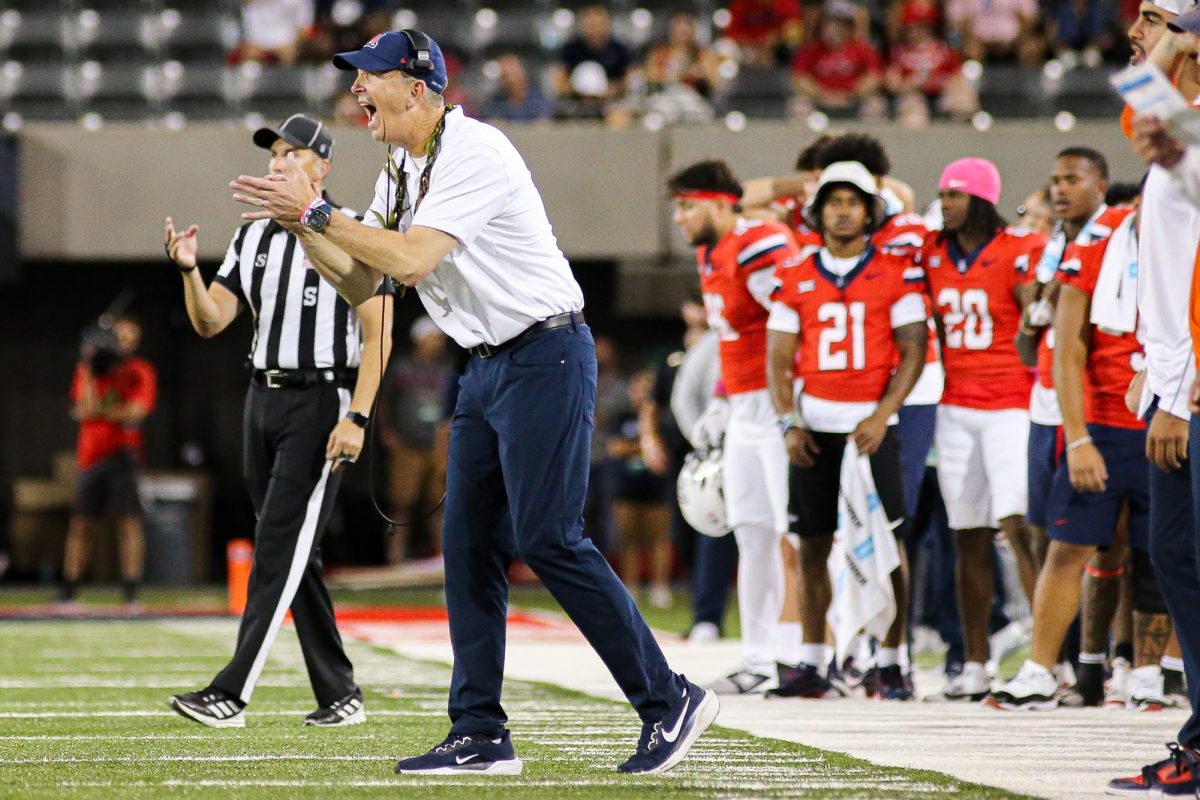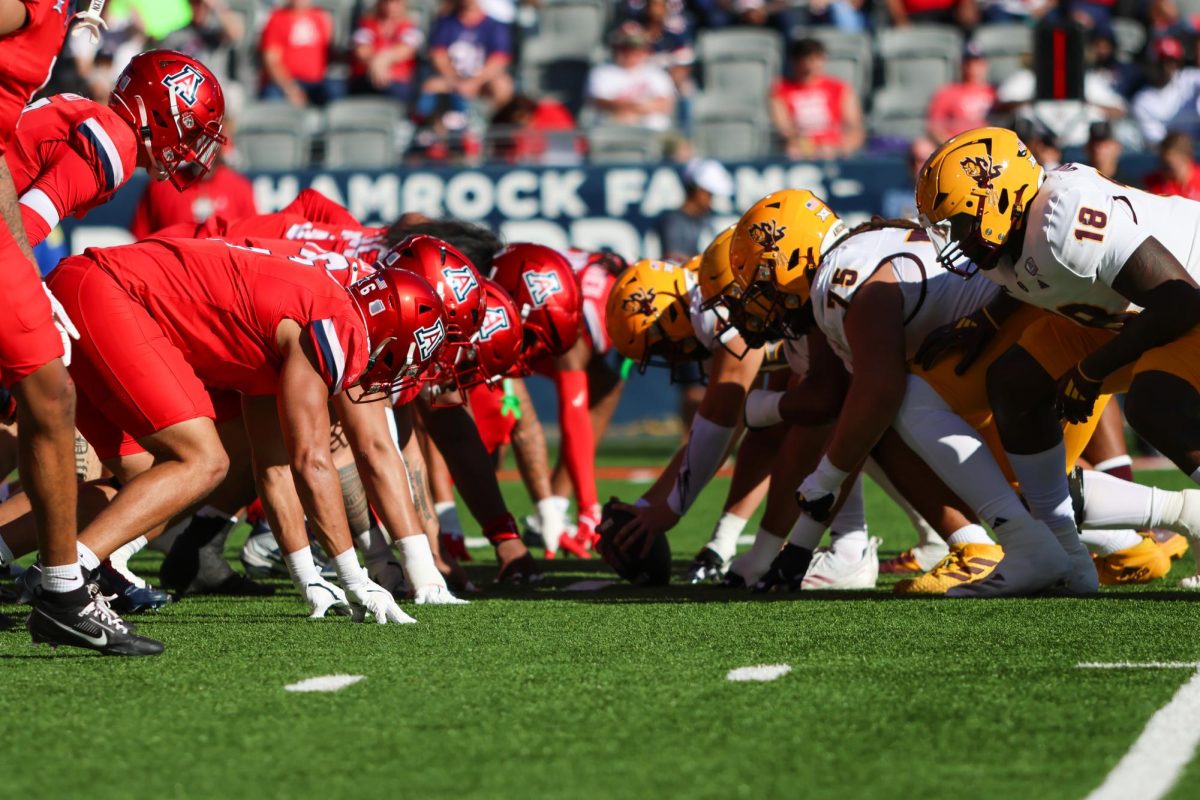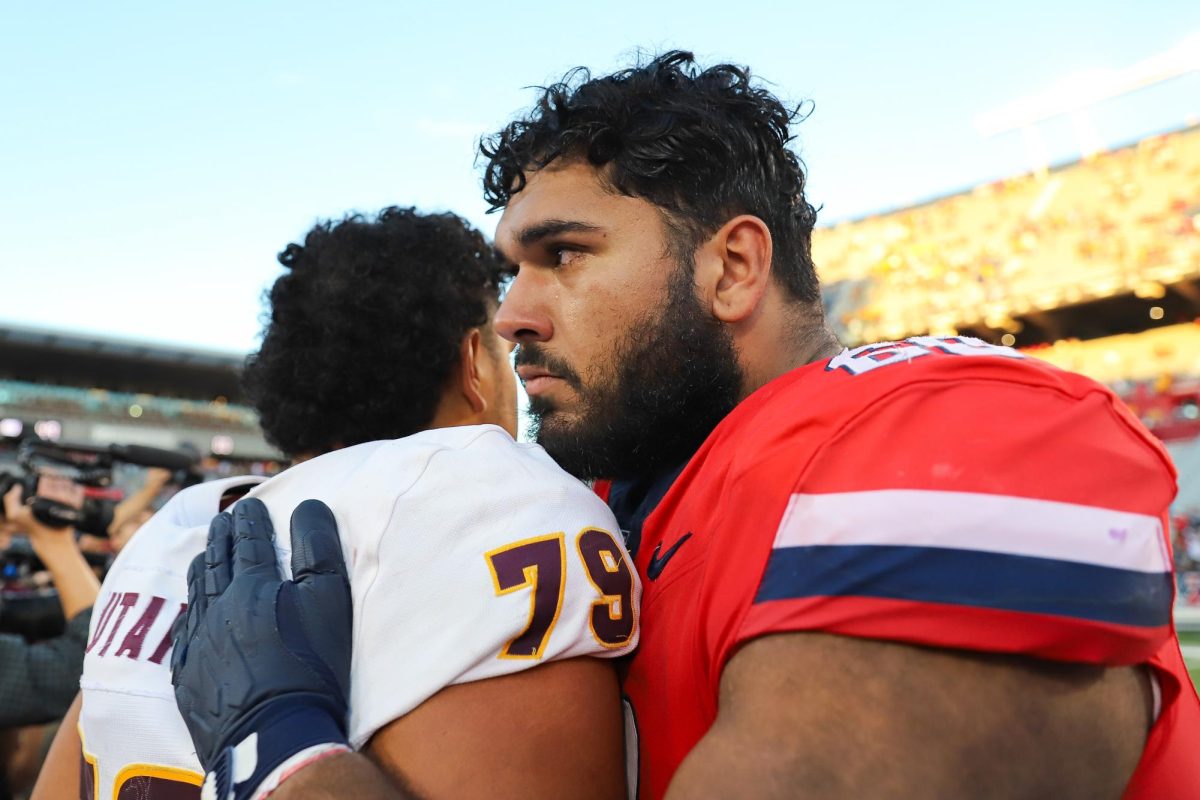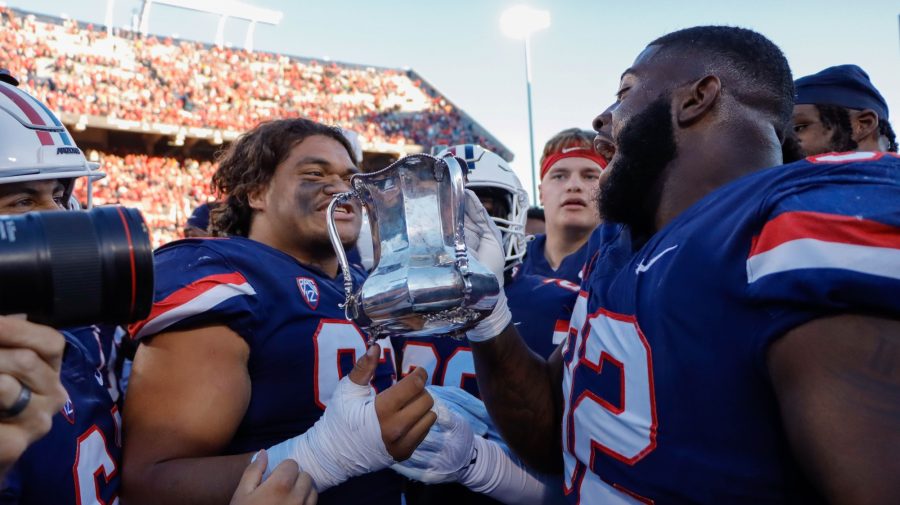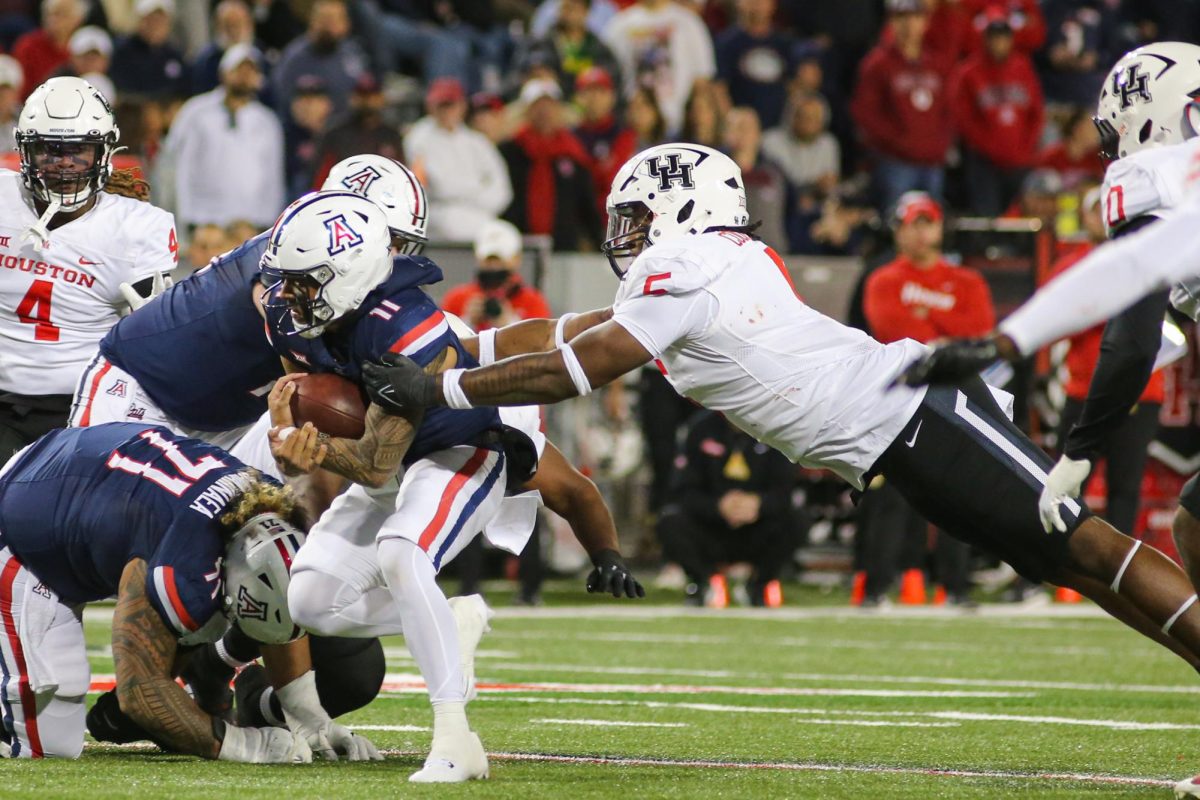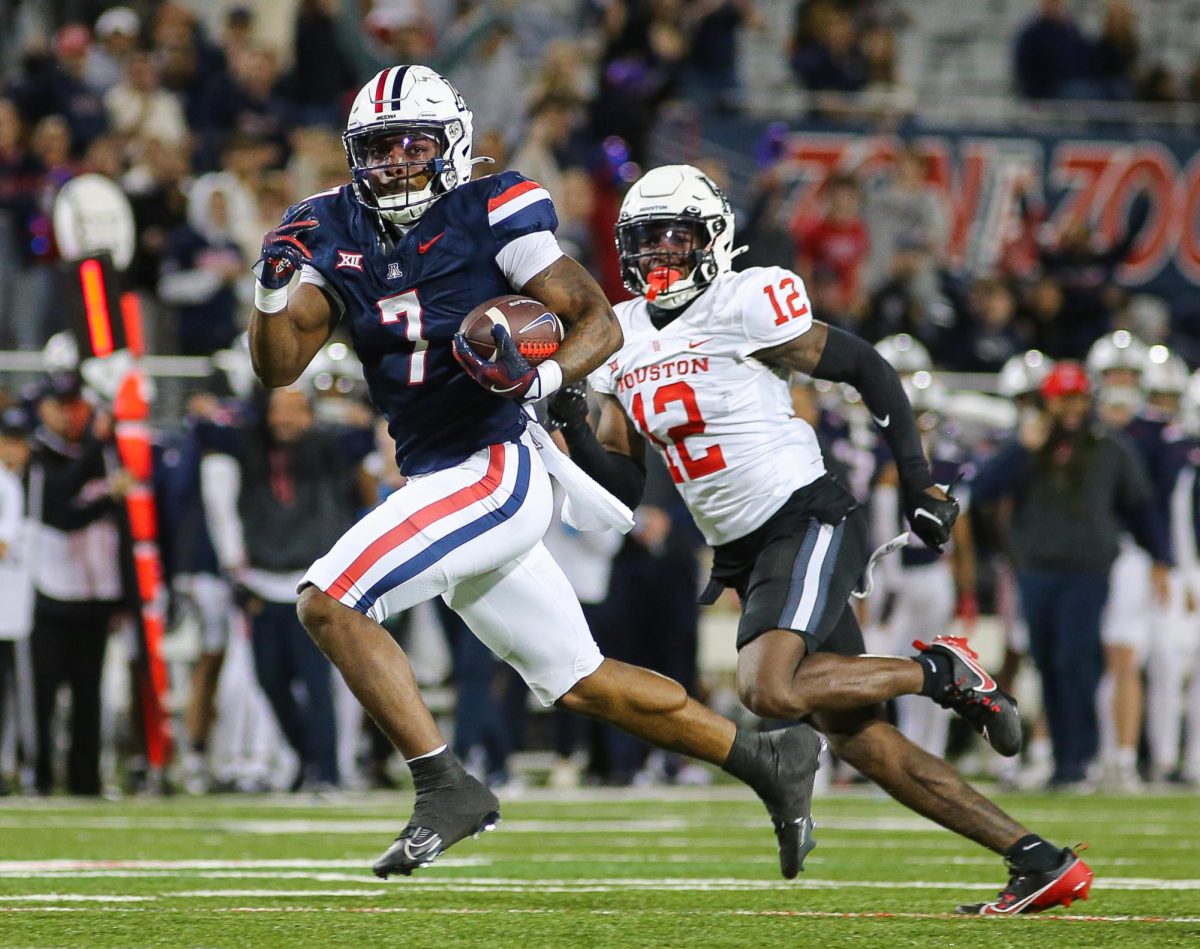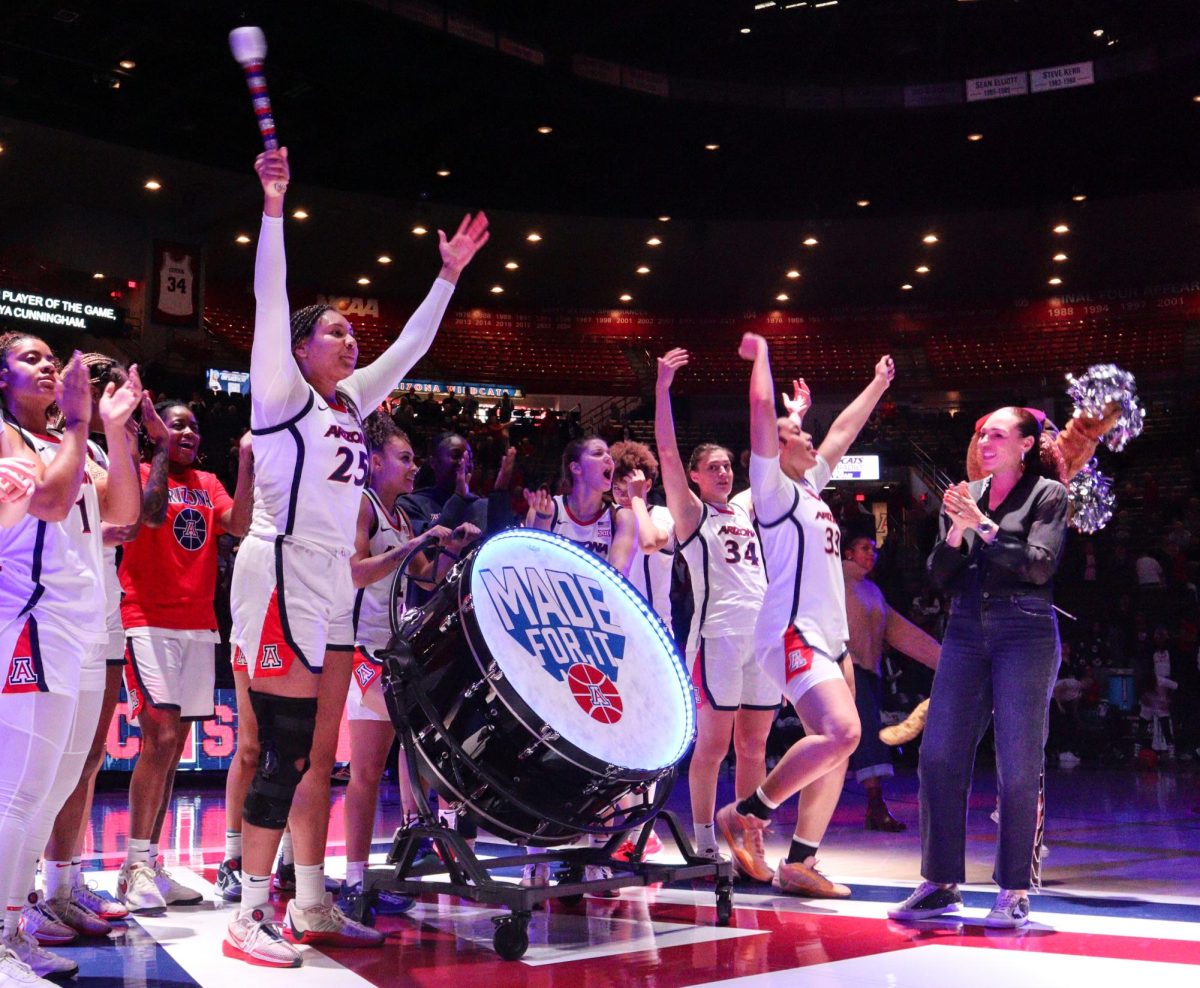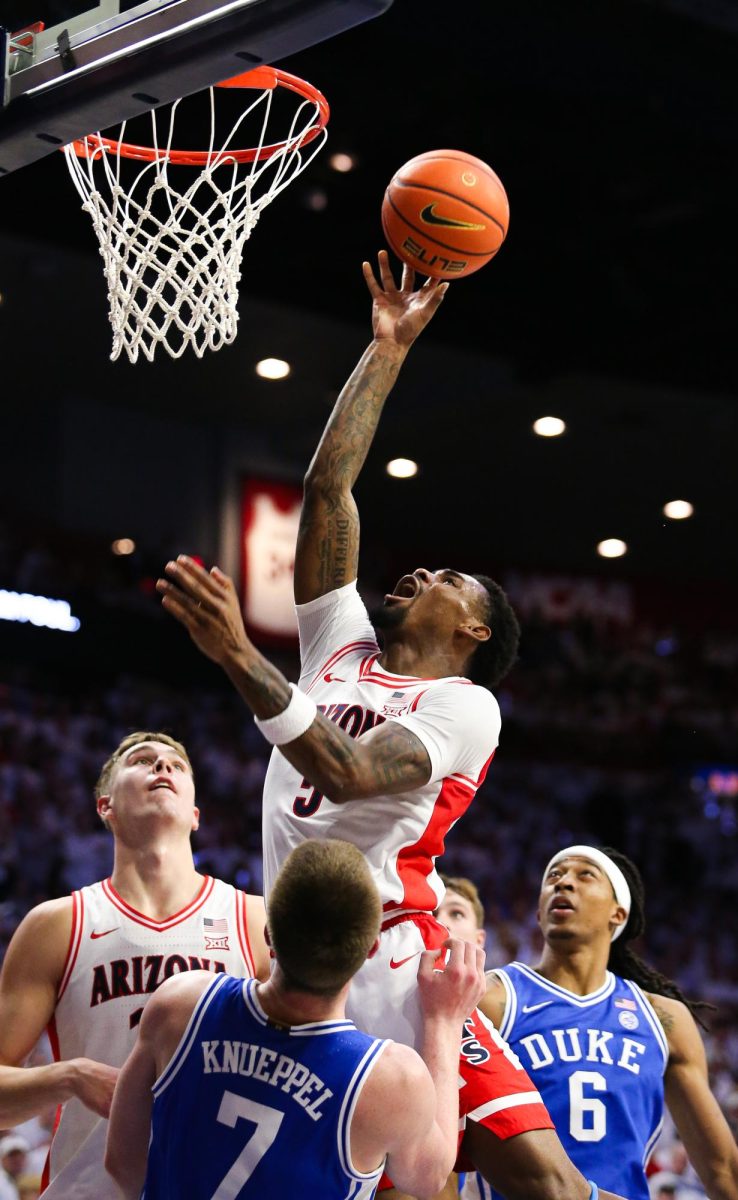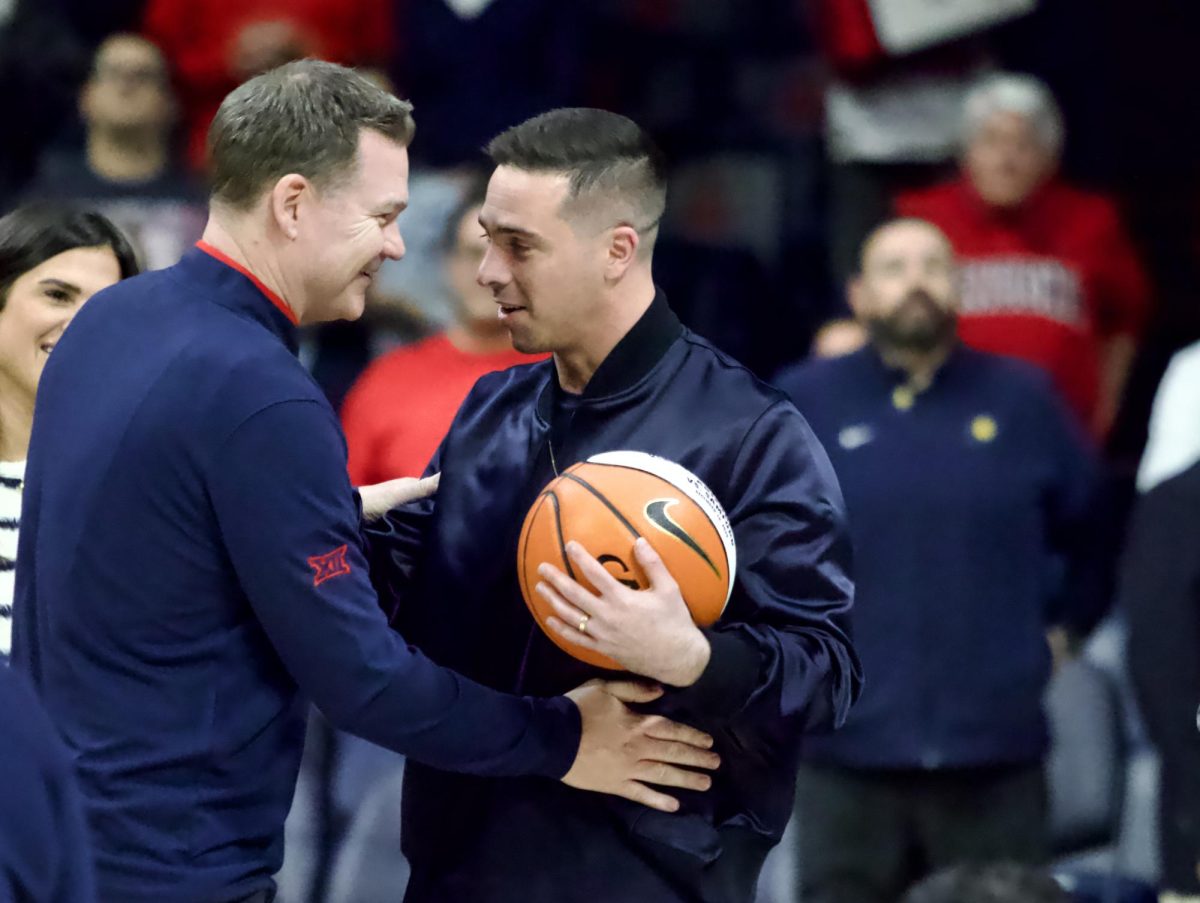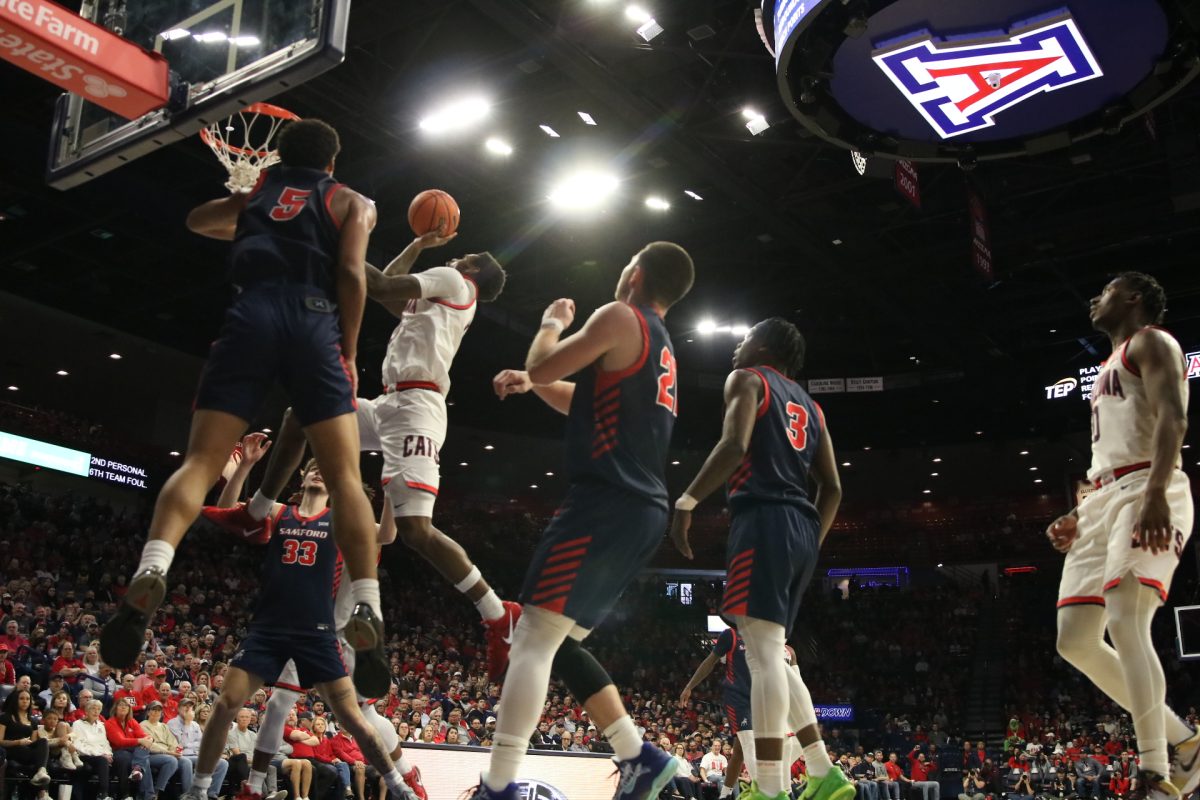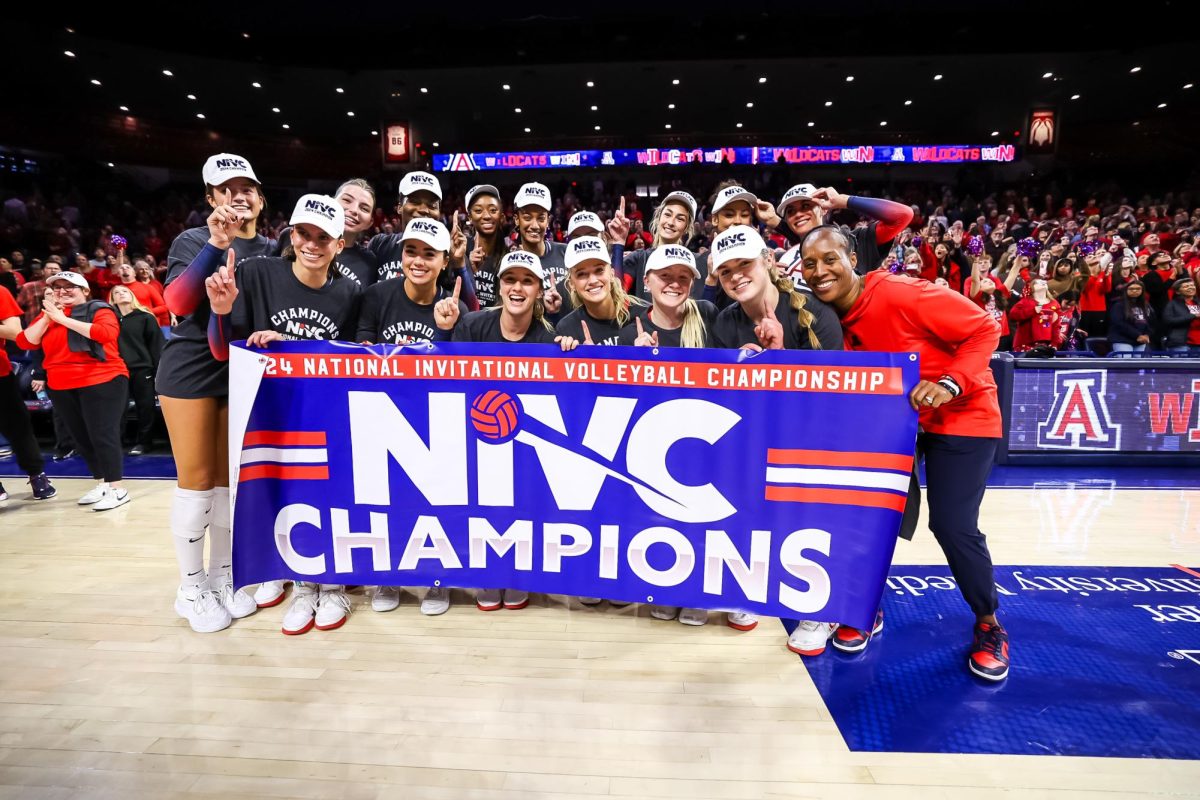Joe Salave’a is a well-traveled man. Having spent nine years in the NFL and named All-Pacific-10 Conference two times, Salave’a commands the attention of a room when he talks.
The first-year defensive line coach has used that to his advantage while changing the mindset of Arizona’s D-line, which must replace the production of ends Brooks Reed and Ricky Elmore, who were second and sixth-round picks, respectively, in April’s NFL draft.
But Salave’a, who played at Arizona from 1994 to 1997, hasn’t taken any sort of groundbreaking or revolutionary approach when working with Arizona’s linemen. Instead, he focused on returning to fundamentals during Arizona’s spring practices.
“”The difference between the good teams and the great teams,”” Salave’a said, “”is the little things.””
That message hasn’t been lost on redshirt sophomore Justin Washington. The lone returning starter on Arizona’s D-line, Washington said that Salave’a’s focus on fundamentals has helped the unit become stronger as a whole.
“”He’s been very helpful. He’s been helpful since the day he got here,”” Washington said. “”We’ve learned a lot of new stuff, new techniques, and it’s good for us.””
After the final leg of a nine-year NFL career ended in 2006 with the Washington Redskins, Salave’a spent the 2008 and 2009 seasons as an assistant coach at San Jose State under Dick Tomey, who served as Arizona’s head coach during Salave’a’s playing days as a Wildcat.
Washington cited Salave’a’s NFL experience as a reason why the coach has been so helpful.
“”It’s definitely great having him around,”” Washington said. “”He’s been through it all already, through college and the NFL. He knows what it takes to get there, and he’s trying to give that to us.””
In 2010, Salave’a, a native of Leone, American Samoa, spent a month at the Seattle Seahawks’ training camp as part of the NFL’s Bill Walsh Minority Coaching Fellowship before volunteering with the football team at Liberty High School, located just outside of Las Vegas.
But Salave’a said he got the itch to return to college coaching last winter, and that he couldn’t have asked for a better group of players to work with.
“”You can always work with the kids that are willing to do the work that you ask of them,”” he said. “”They’ve done everything thus far … the maturity part will come.””
Although it would seem that Washington, who earned first-team Freshman All-America honors from Sporting News and College Football News after his 46-tackle, six-sack freshman season, is a natural fit for a leadership role, Salave’a isn’t quite ready to anoint him leader of the unit.
“”I expect all of our guys to take that role, the beauty of this game is that it’s ‘what have you done for me lately?'”” Salave’a said. “”What he’s done last year isn’t going to buy him anything this year.””
But while Salave’a is hesitant to appoint Washington as a leader, the sophomore said he feels the responsibility of being one of the more experienced players on the defensive side of the ball.
“”I got one season under my belt, it’s time for me to step up and lead these younger guys,”” Washington said. “”We’ve got a lot of young guys on the D-line, I just want to be a good example for them.””
The fact that Washington has only a single season of game experience hasn’t slowed down his ability to help more inexperienced players. Things that helped him during that season are still fresh in his mind, which helps him better understand the mistakes those players make, he said.
“”Whenever they mess up, I just try to correct them,”” Washington said. “”I’ll give them hints on their pass rush, just stuff that I know helped me during my first season is stuff I’ll try to help them with, too.””
Washington said that he’s careful not to get too vocal or upset with younger players for making mistakes.
“”I don’t really get after them too much,”” Washington said. “”I’ll just be like, ‘Yeah, that was good,’ or ‘You’ve got to get your steps right,’ or just talking to them like a friend.””
While fans may look at this year’s D-line as having to replace players like Elmore and Reed, Washington said that he is just concentrating on what this year’s unit can accomplish as a whole.
“”We don’t have to make any new names,”” he said. “”It’s just coming together as a unit, as a family and as a team.””
But Salave’a said he makes sure that his players know that any success they’ve had in the past won’t automatically translate to the 2011 season.
“”What we did two hours ago isn’t going to guarantee us nothing right now,”” Salave’a said. “”I’m like their conscience right now. What they did last year, it don’t mean nothing to me, it don’t mean nothing to our team. But their leadership and the way they going about working right now … that’s how we’re going to get this thing done.””



